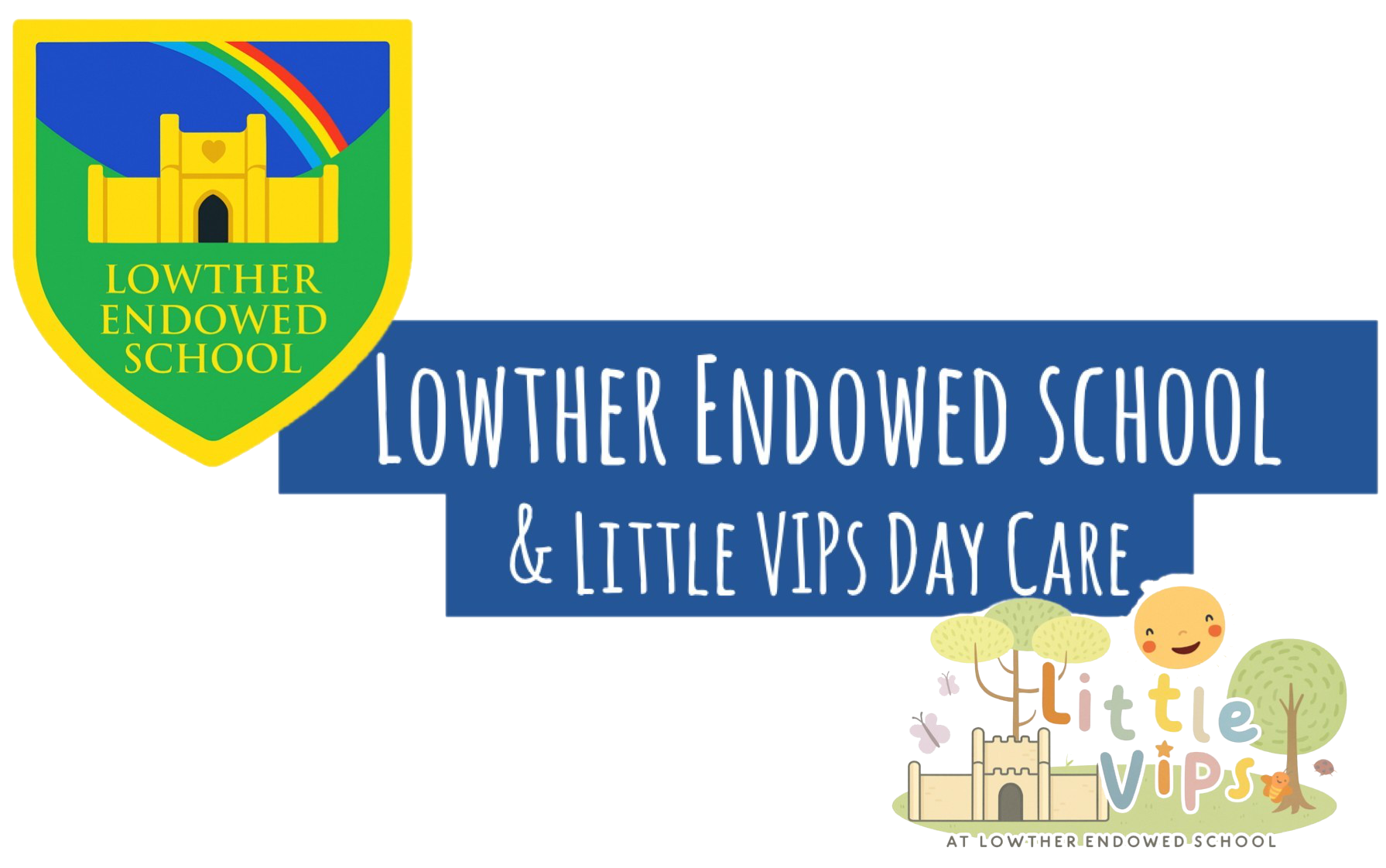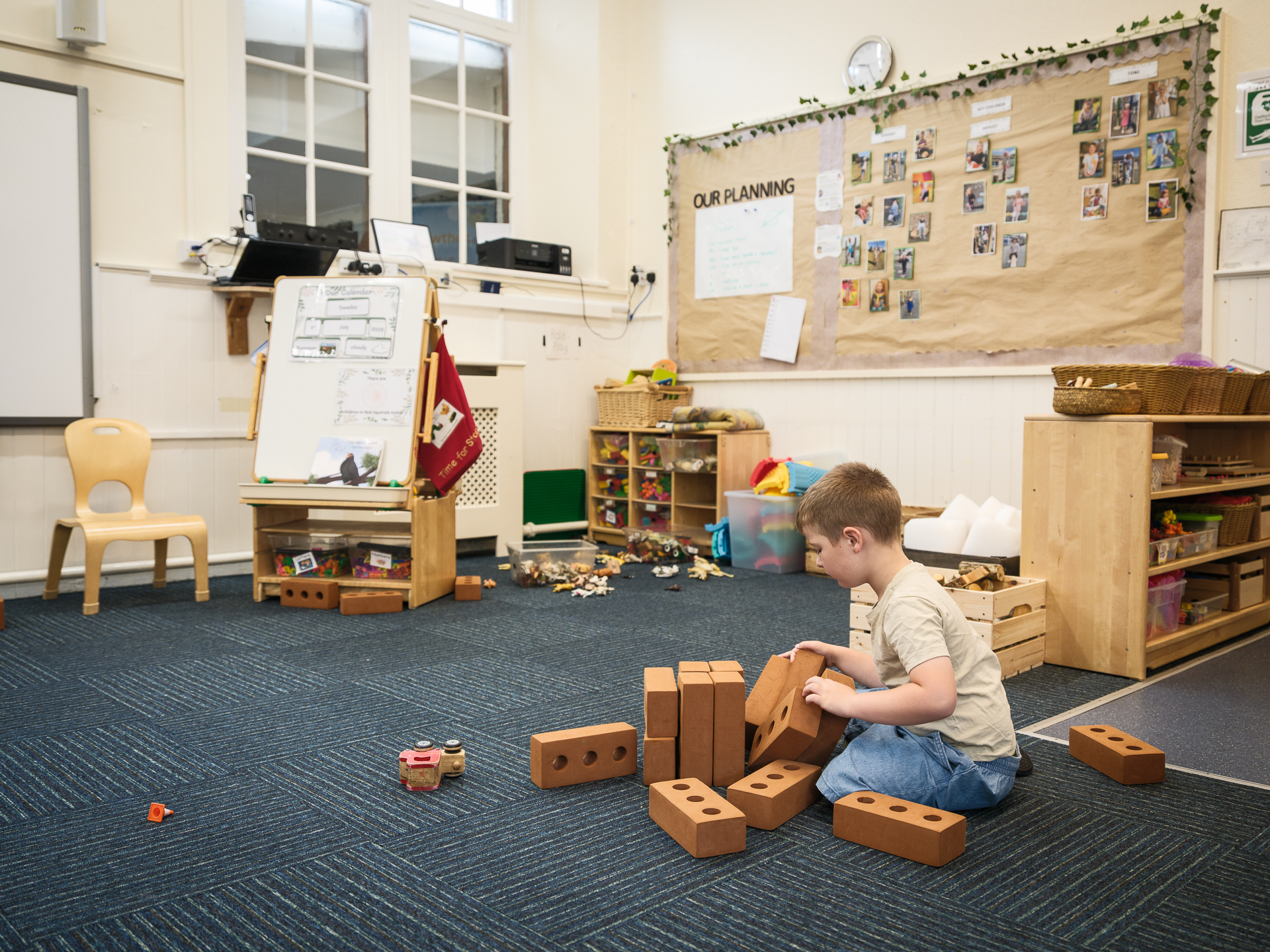Computing
Computing is taught across the curriculum and is used to promote and enhance learning. A stand-alone computer programming lesson is also taught weekly.
We encourage children from an early age to be confident in using many forms of technology including laptops, ipads, digital cameras, video recording equipment, programmable robots, sensing equipment and digital microscopes.
All classrooms have interactive plasma screens which are used by individuals and for whole class teaching.
We are so lucky to have laptops and iPads available for each class. Our computing journey is going from strength to strength. The well-planned sequence of learning ensures the progression of key skills.
Intent
At Lowther Endowed School, our Computing curriculum is designed to equip all pupils with the knowledge, skills, and understanding they need to thrive in a digitally connected world. We aim to ensure children become confident, competent, and responsible digital citizens, able to use technology to express themselves, develop their ideas, and solve problems.
Our curriculum is based on three key strands:
-
Computer Science – understanding how digital systems work and programming to control them.
-
Information Technology – using computers purposefully to create, organise, store, and retrieve content.
-
Digital Literacy – using technology safely, respectfully, and responsibly, including how to identify and manage online risks.
We are committed to closing the digital divide, ensuring all children have access to high-quality computing experiences regardless of background. We also recognise the importance of computing in supporting learning across the wider curriculum and preparing pupils for future education and employment.
Implementation
-
Computing is taught weekly through a structured, progressive scheme of work that meets the requirements of the National Curriculum and is adapted to meet the needs of mixed-age classes.
-
Lessons include practical, hands-on activities that develop programming, problem-solving, and critical thinking skills.
-
Children have access to a range of devices and software, including laptops, tablets, coding apps, and online learning platforms.
-
Online safety is embedded across the curriculum and explicitly taught each term, with additional focus during national events such as Safer Internet Day.
-
Staff receive ongoing CPD and support to ensure high-quality teaching of computing concepts and confidence in using new technologies.
-
Computing is also used as a tool to enhance cross-curricular learning, such as using data handling in science, digital art in art lessons, and multimedia presentations in English or topic work.
-
Pupils are given opportunities to apply their digital skills through projects, presentations, and collaboration, both in school and through home learning platforms.
Impact
As a result of our Computing curriculum:
-
Pupils develop secure understanding of key computing concepts and can confidently apply their knowledge across different technologies and platforms.
-
Children become logical thinkers and problem-solvers, able to design, debug, and evaluate simple programs.
-
Pupils can use a range of digital tools to create, present, and share information effectively and appropriately.
-
All children understand how to stay safe online, how to recognise online risks, and how to act responsibly and respectfully in digital environments.
-
Children leave Lowther Endowed School with the digital literacy and confidence to participate fully in the ever-evolving digital world and to succeed in the next stage of their education.
Progression Documents
- KS1 Vocabulary
- KS1 TCC Curriculum map
- Teach Computing Curriculum KS2 vocabulary list
- KS2 TCC Curriculum map
-
Computing Knowledge Organisers
- Y1 Computing Systems & Networks
- Y1 Creating Media - Digital Painting
- Y1 Creating Media - Digital Writing
- Y1 Data and Information Grouping Data
- Y1 Programming Animations
- Y1 Programming - Moving Robots
- Y2 Computing Systems & Networks
- Y2 Creating Media - Digital Photography
- Y2 Creating Media - Digital Music
- Y2 Data & Information - Pictograms
- Y2 Programming - Quizzes in Scratch
- Y2 Programming - Robot Algorithms
- Y3 Computing Systems & Networks
- Y3 Creating Media - Animations
- Y3 Creating Media - Desktop Publishing
- Y3 Data & Information - Branching Databases
- Y3 Programming - Events & Actions
- Y3 Programming - Sequencing in Scratch
- Y4 Computing Systems & Networks
- Y4 Creating Media - Audio Editing
- Y4 Creating Media - Editing Photos
- Y4 Data & Information - Data Logging
- Y4 Programming - Repetition in Scratch
- Y4 Programming - Repetition in Shapes
- Y5 Computing Systems & Networks
- Y5 Creating Media - Vector Drawing
- Y5 Creating Media - Video Editing
- Y5 Data & Information - Flat File Databases
- Y5 Programming - Quizzes in Scratch
- Y5 Programming - Selection in Physical Computing
- Y6 Computer Systems & Networks
- Y6 Creating Media - 3D Modelling
- Y6 Creating Media - Webpage Creation
- Y6 Data & Information - Spreadsheets
- Y6 Programming - Using Microbits
- Y6 Programming - Variables in Games
Cultural Capital in Computing
Our computing curriculum exposes all pupils to experiences they otherwise would not have had.
- We empower pupils to apply their computing skills and knowledge to the wider curriculum and acknowledge links between subjects.
- Pupils explore how ideas in computing have inspired others, and they create digital products which incorporate their own beliefs.
- Pupils develop morally through the encouragement of good etiquette when using technology.
- Socially; pupils are encouraged to assist one another in problem solving.

As part of our Computing Curriculum, we use a comprehensive scheme of work to teach aspects of Online Safety explicitly throughout the year. Project Evolve is an online based scheme of work which is constantly 'evolving' to ensure the online safety messages that children and young people are being taught are delivered in a way that is more appropriate; more meaningful; that encourages reflection; that generates positive outcomes and are updating regularly to reflect the changing world.
Online Safety content is separated into eight strands which are taught throughout the year covering everything from online relationships to copyright and ownership.
What does Computing look like in EYFS .....
In the Early Years Foundation Stage at Lowther Endowed School, Computing is not taught as a discrete subject, but is instead woven into the curriculum through a play-based and exploratory approach that lays the foundations for digital literacy, problem-solving, and computational thinking.
Although the EYFS framework does not explicitly include Computing, we provide meaningful opportunities to help children:
-
Explore and use a range of technology in purposeful, real-life contexts, such as interactive whiteboards, tablets, digital cameras, programmable toys (e.g. Bee-Bots), and simple software.
-
Begin to understand cause and effect through activities such as pressing buttons, dragging and dropping, or using apps that respond to input.
-
Develop early coding and sequencing skills through unplugged activities, such as giving verbal instructions or arranging picture cards to represent a sequence of actions.
-
Use technology to create and express ideas, such as drawing pictures, recording voices, or taking photos.
-
Learn about technology in the world around them (e.g. tills in shops, traffic lights, telephones, kitchen appliances), often through role play and discussion.
-
Talk about how to use technology safely and respectfully, introducing simple online safety concepts in age-appropriate ways—like asking a trusted adult before using a device or recognising when something online doesn’t feel right.
Our provision supports the Early Learning Goals in areas such as Understanding the World, Communication and Language, Mathematics, and Expressive Arts and Design, while also ensuring children begin to develop the curiosity and confidence to use digital tools and language.
By the end of EYFS, our pupils are well-prepared to access the formal Computing curriculum in Key Stage 1, with a secure understanding of how technology can be used to explore, create, and solve problems.


